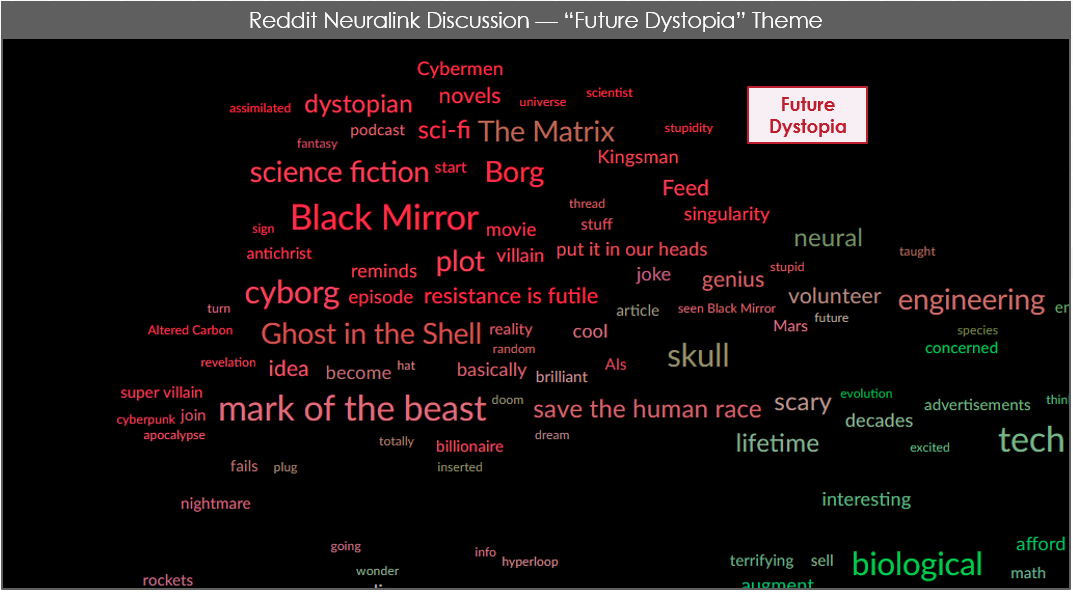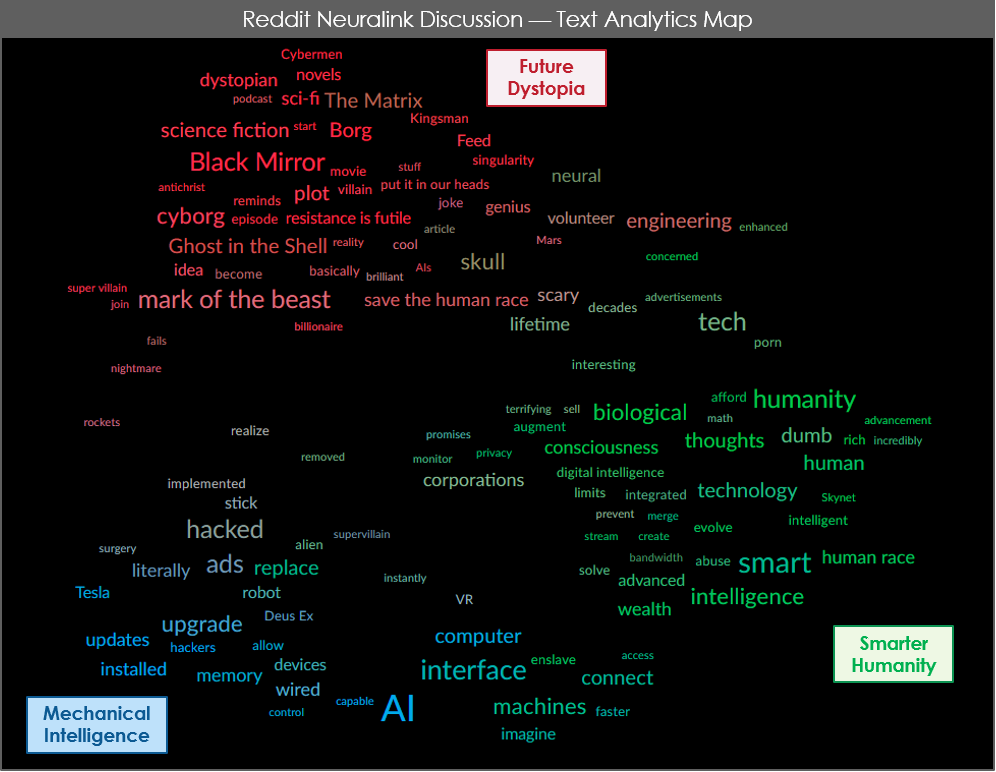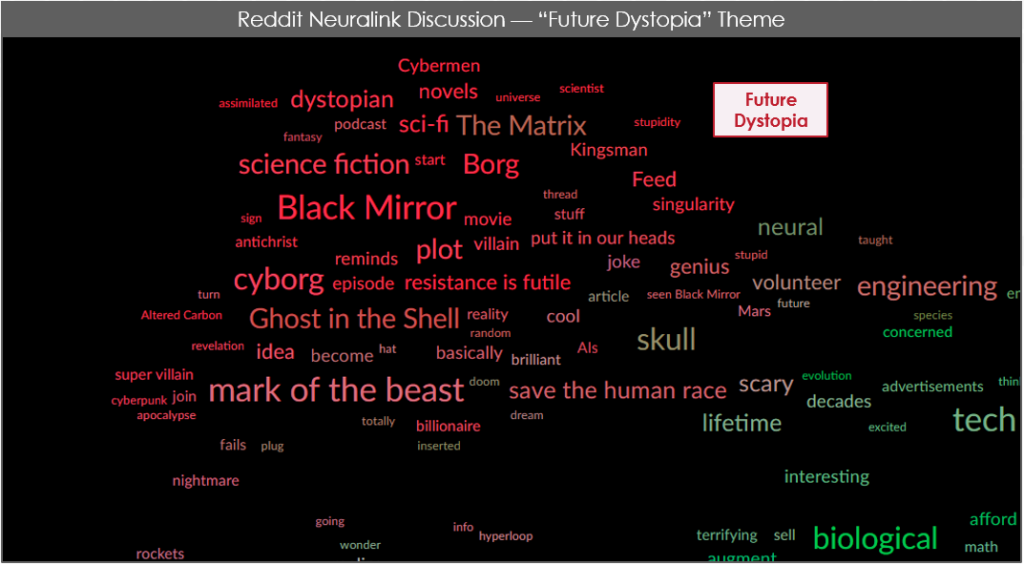“We keep moving forward, opening new doors, and doing new things, because we’re curious and curiosity keeps leading us down new paths.” So said the late great Walt Disney. But would he have been willing to have a microchip implanted in his brain? Would you?
As it turns out, several companies are currently developing technology that would allow people to communicate directly with computers, smartphones, or other electronic devices through their thoughts alone. This brain-computer interface technology is being developed by companies including Facebook and Elon Musk’s Neuralink, and may take a variety of forms, from a simple headset to a microchip implanted directly in a person’s brain. Just a few months ago Musk announced that Neuralink is planning to begin human trials next year for a brain implant.
But how will the public react to this technology? Will it be seen as nothing more than an intriguing toy, or an evolutionary leap forward for humanity? Or perhaps a step towards a darker future?
We explored this question by applying our Pathfinder Text Analytics methodology to over 1,000 open-ended comments taken from a Reddit thread where commenters discussed this ground-breaking technology shortly after Musk’s Neuralink announcement. The resulting concept map groups the Redditors’ reactions into three distinct themes:
This concept map shows a visual depiction of the topics that Redditors discussed when reacting to Neuralink’s announcement of upcoming human trials. (Click to enlarge)
Note: When reading a Pathfinder Text Analytics map, the size of a word reflects its overall importance to the data set; its proximity to other words shows the strength of the association between them; and its color reflects its connection to the map’s main themes.
- Smarter Humanity: Redditors speculate how this technology will impact humanity. How will it affect our consciousness and thoughts? Could it raise our collective intelligence? And how will it impact human society as a whole? A wide variety of opinions are given, but they tend to agree that the potential impact to humanity could be a game-changer — though for some that only increases their skepticism.
“It could lead us to miracles in medicine, engineering and a lot more. But in the long run I can see it becoming a problem. It will be able to get any data: your status, your location, your connections — and may be used to ‘control’ society, either by ranking people or by reporting any suspicious activities, which doesn’t sound bad at first but it will create a population ruled by fear.”
“Out of all the good that can come out of this there is a lot of bad that can possibly happen as well. We can either shoot our technological and societal advancement into the galaxy or we can destroy ourselves and send each other back to the Stone Age.”
- Mechanical Intelligence: Redditors are curious about aspects of traditional computer hardware and software and how they might apply to brain-computer technology. Redditors were also concerned with the idea of their brains being hacked or spammed with ads or even malware. And some doubt that the technology is anywhere near ready for implementation on a mechanical level.
“Just what I want, having to worry about viruses, malware, ad blockers, hackers, bios updates, and warranties for my brain.”
“Neural interfaces are nowhere near ready for implantation. Rewiring motor control is one thing, but thinking you can have a HUD on the inside of your eye or access the web through an implant is not how brain electronics work. You’re just going to give people seizures.”
Future Dystopia: Finally, perhaps it’s not surprising that many Redditors turn to popular science-fiction films and television programs to express their fears about the potential downsides of a brain-computer interface, as this ‘zoomed in’ map reveals:
A closer view of the ‘Future Dystopia’ portion of the map reveals a mix of associations, from Stark Trek to cyberpunk. (Click to enlarge)
- Black Mirror: Things typically don’t go so great for the main characters in this dark anthology about the not-too-distant future. Technological advancements that seem helpful at first often become a waking nightmare. The episode “Arkangel” features a concerned parent who has her child implanted with a tracking chip that can also censor what the child sees and hears. There are, you won’t be surprised to hear, unintended consequences.
“Anyone old enough to remember when Captain Kirk’s communicator was futuristic? Now do the same but with Black Mirror.”
- Ghost in the Shell: This clever cyberpunk anime uses human body-part augmentation and the transfer of consciousness to address questions about self-perception and identity, and what it means to be human.
“This is exactly how Ghost in the Shell starts. It starts off as a neat thing, and within a generation everyone without one is shunned from society.”
“This is basically the entire plot of Ghost in the Shell, and I really don’t like the idea of a terrorist hacking into my brain so that everyone’s face is a Holden Caulfield quote.”
- The “Mark of the Beast”: A surprisingly strong appearance from the Bible, this Book of Revelation reference generates strong associations with a hellish future society dominated by an essential “mark” required for all commerce.
“I know this is irrational and stupid but does anyone else have that nagging irrational fear of the whole ‘mark of the beast’ thing?”
“Imagine that you have a brain implant that allows you to experience full immersion virtual reality, and imagine that the AI controlling the hardware *doesn’t like you*. There’s your eternity in hell.”
- Star Trek: One of many great story lines from this long running series introduced a powerful race of cyborgs known as the Borg. These hive-minded cybernetic organisms forcibly absorb other species by injecting nanoprobes and surgically augmenting them with cybernetic components.
“We are the Musk. Your technological and biological distinctness will be added to our own. Resistance is futile.”
- The Matrix: Spoiler alert! In this film humanity is unknowingly trapped inside a false reality invented by malicious machines seeking to keep people docile. Could Neuralink be the beginning of the end for humanity?
“So he’s genuinely concerned that we may already be living in a simulation and now he’s trying to plug us into The Matrix.”
It’s interesting how we (or Reddit contributors, at least) view this future technology through the lens of popular science fiction. Perhaps these stories serve as a common cultural touchstone that help us distill a complex topic into easy to understand ‘what if’ scenarios. But do they all have to be nightmarish? Maybe Redditors are just really cynical? We’ll find out one way or another when and if brand-computer interfaces become a reality.












